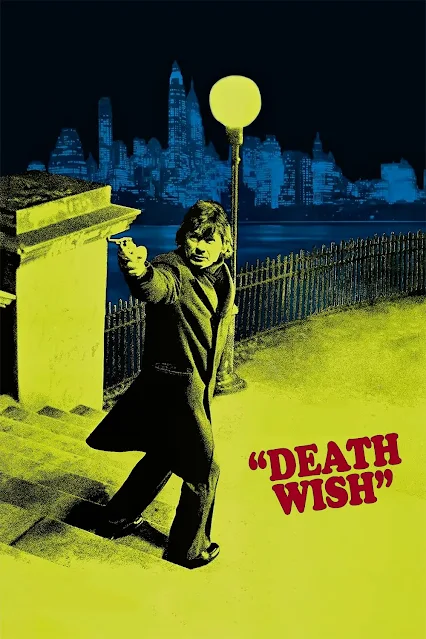Death Wish (1974) is a vigilante action-thriller film directed by Michael Winner, based on the 1972 novel by Brian Garfield. The film stars Charles Bronson as Paul Kersey, an architect who becomes a vigilante after a brutal home invasion results in the murder of his wife and the sexual assault of his daughter. This traumatic event propels Kersey into a life of vigilantism, as he seeks to take justice into his own hands amidst the rising crime rates in New York City during the 1970s.
The film begins with Kersey leading a seemingly normal life with his wife, Joanna, and their daughter, Carol. However, their lives are shattered when three muggers break into their apartment, brutally assaulting Joanna and raping Carol. Following Joanna's death from her injuries and Carol's subsequent catatonic state, Paul is left devastated. The police are unable to provide the justice he seeks, prompting him to adopt the role of a vigilante. He initially struggles with this new identity but soon finds himself empowered by his actions as he confronts criminals on the streets.
Death Wish explores themes of justice, morality, and the consequences of vigilantism. The film was controversial upon its release for its perceived endorsement of taking the law into one's own hands, contrasting sharply with the original novel's criticism of such actions. Critics argued that while the film reflects societal frustrations over crime, it also risks glorifying violence as a means of resolution.
Despite mixed reviews from critics, Death Wish was a commercial success, grossing approximately $30 million at the box office against a budget of $3.7 million. Its popularity led to several sequels and established a franchise that would continue for decades, solidifying Bronson's status as an action star. The film's impact on popular culture is significant; it has influenced numerous vigilante films and discussions around justice and morality in cinema.
Overall, Death Wish remains a pivotal work in the action genre, reflecting societal anxieties of its time while prompting ongoing debates about justice and vigilantism in modern society. Its legacy continues to resonate through its sequels and remakes, including the 2018 reboot directed by Eli Roth.

No comments:
Post a Comment